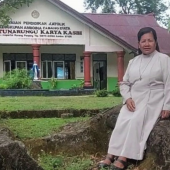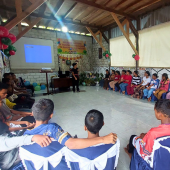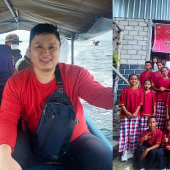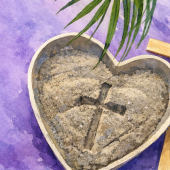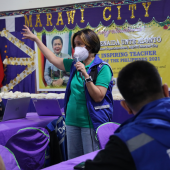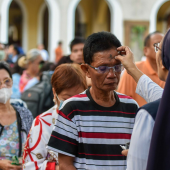Indonesian environmentalist involves people in waste management
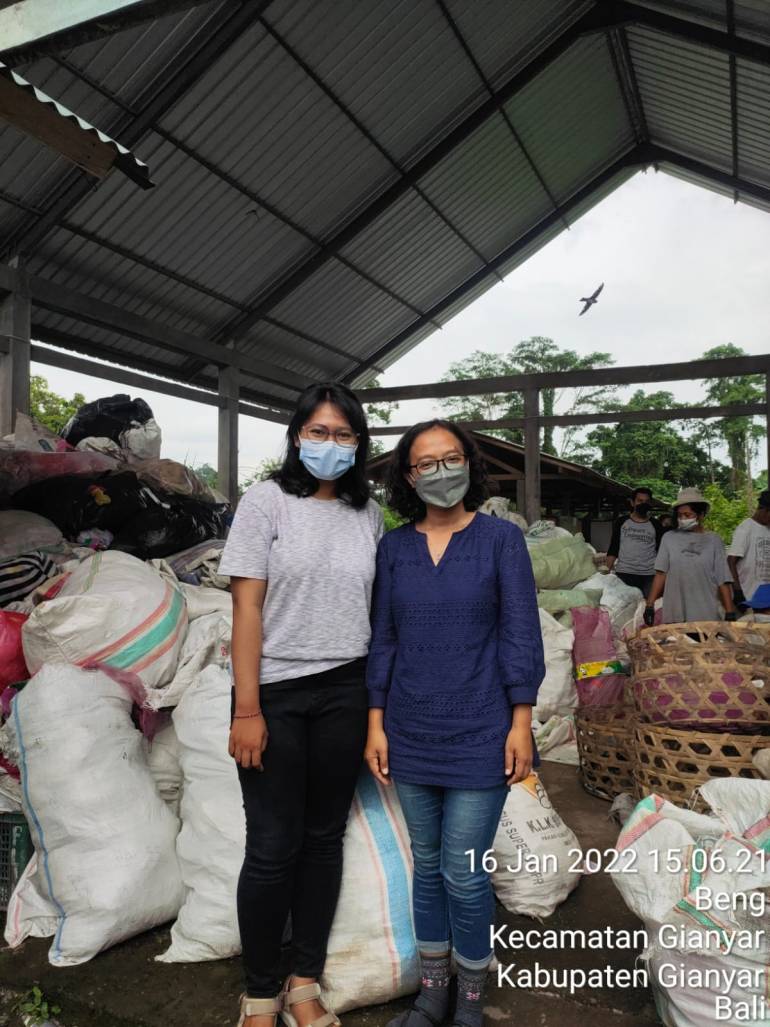
To be included in the BBC of 100 inspiring women list category is surprising since she is still young and has limited experience. She is the only Indonesian woman to be named on this list in 2021.
“I'm still in shock because there are many Indonesian women who do more than me,” said Putu Mia Krisna Pertiwi (Mia), 25, an environmental analyst at the Denpasar Environmental Service. She is also the chairperson of Griya Luhu, an NGO that is actively engaged in the field of waste management.
Due to her interest and wanting to contribute to the environment, Mia joined Griya Luhu in February 2019, right after she graduated from the Bandung Institute of Technology majoring in environmental engineering at the end of 2018.
“Initially, I joined as a volunteer. At that time Griya Luhu was still a small community, and its activity was to provide waste awareness to schools. Finally, I joined and continue to learn—what I can do and develop,” explained Mia.
Mia was later appointed as the NGOs’ operational manager who is in charge of developing programs and supervising all operational activities. Recently, he was appointed to be Griya Luhu’s chairperson.
Originating from the awareness activity, Mia and the team saw that the main source of waste is the household, and its manager is a woman. The key to waste processing is in the hands of housewives. From this experience, Mia and her colleagues moved and initiated to provide awareness of waste management to housewives.
“Organic waste can naturally be composted and does not require additional treatment. Inorganic waste is always used as a scapegoat in the environment because they are not treated properly. Meanwhile, this residue waste should end up in the last dump,” explained Mia.
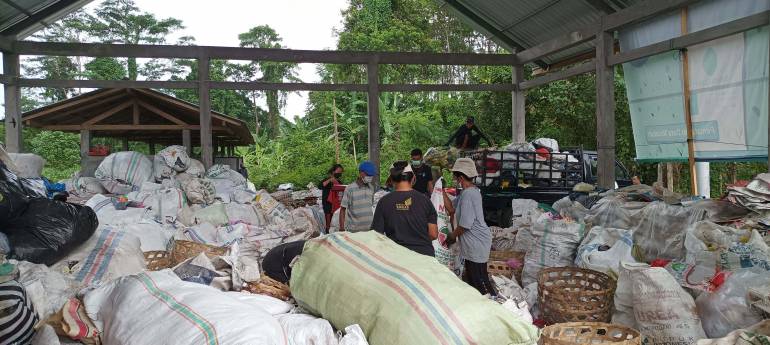
She also emphasized that “From this category, inorganic waste which is usually used as a scapegoat has an economic value. The most feasible solution is to create a waste bank.”
Shortly, the team studied the waste bank system deeply on how it operates, and how to make a profit.
As an initial project, Griya Luhu under Mia's supervision built a system that was applied to one of the pilot village’s projects. Residents’ enthusiasm and response were encouraging after the project went well. New projects emerged along with the success of the waste bank system they had developed.
In Indonesia, according to the country’s waste statistics (2021), plastic waste ranks second at 5.4 million tons per year, or 14 percent of the total waste production. Indonesia is one of the biggest contributors/producers of waste in the world.
In Bali, waste is a concern of many parties, because the tourist Island does not have land for waste processing. "Now each district is overwhelmed to create a last dumb, while waste production continues," described Mia.
According to her, compared to other areas she has visited, Bali is more willing to waste management awareness and implement the waste bank program. Therefore, there are opportunities and challenges to process waste in Bali.
“The waste problem in Bali is quite serious, with Balinese culture; the amount of waste is quite large, especially with ceremonial activities in Bali. Waste can be produced in extraordinary quantities and the waste is then immediately taken to the last dumb,” said Mia.
She sees that direct disposal of waste to the last dumb is not the solution. "It's just moving the problem. Organic waste is homework for us, while inorganic waste with the waste bank program can be a solution,” she continued.
The waste bank pioneered by Griya Luhu is currently emerging in almost all districts in Bali. Soon this program will be adopted in Surabaya (East Java) and Makassar (South Sulawesi).
With the increasing number of waste bank customers, and to simplify the operation of this program, Griya Luhu created a waste bank application that can be downloaded on Play Store. This application was developed by the NGO team considering that the waste bank customers are mostly simple housewives aged from 30 to 50 years.
"With this application, all of our data is transparent and accountable, so it can be used to evaluate community involvement in waste management," explained Mia.
The most important achievement for Griya Luhu's journey so far is a change in the perspective of local people on waste.
"The result we feel is a habit transformation of the community. At first, they used to burn and dispose of waste carelessly or directly disposed of in the last dump, but now, they utilize waste by exchanging it through the waste bank,” emphasized Mia.
Mia also explained that currently, the community contributed less to the amount of waste that was put into the last dump. In addition, the Griya Luhu programs help the community to support the government program on waste management and actively participate in solving waste problems in Bali.
Motivated from the Balinese philosophy of Tri Hita Karana where humans are obligated to foster harmonious relationships between the environment, fellow humans, and God, Mia is encouraged to work and serve the community according to what she has and is capable of. For her, by joining Griya Luhu, she can fulfill and implement the philosophy that inspires her.
To be engaged with garbage can have decent results and heal the environment. By assisting the surrounding community, she fulfills the call to share goodness and live in harmony with others. And finally, what she is currently doing to the environment and others, they are accountable to God.
For Mia, we are the cause of environmental problems, as each has a different understanding of the environment, especially waste. Therefore, many people are not aware of waste management so it becomes a problem.
But she also saw and involved them in the problems they caused. Since fundamentally we can solve them. We must manage our waste process so that the waste we produce does not pollute and damage the environment.
Griya Luhu, which was founded in 2018, currently has around 20,000 waste bank customers in the province of Bali.
Radio Veritas Asia (RVA), a media platform of the Catholic Church, aims to share Christ. RVA started in 1969 as a continental Catholic radio station to serve Asian countries in their respective local language, thus earning the tag “the Voice of Asian Christianity.” Responding to the emerging context, RVA embraced media platforms to connect with the global Asian audience via its 21 language websites and various social media platforms.









